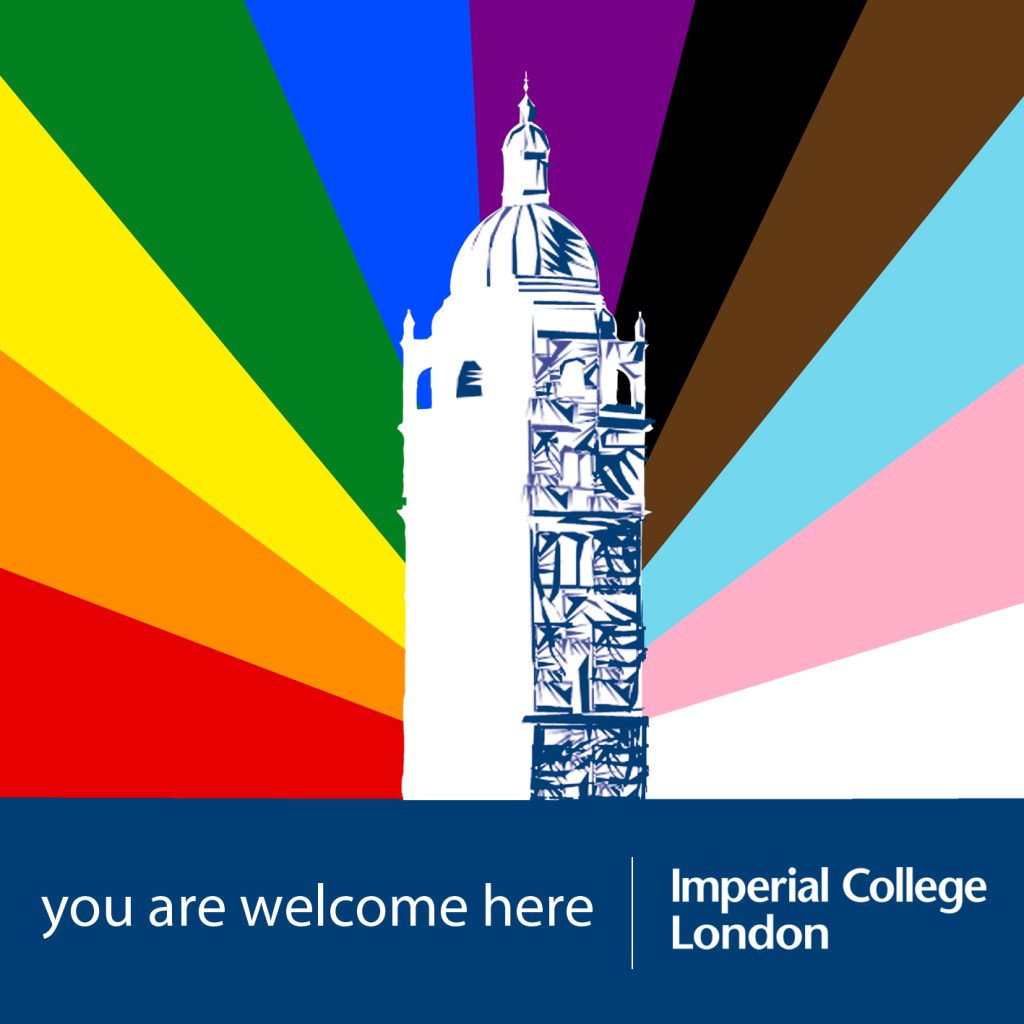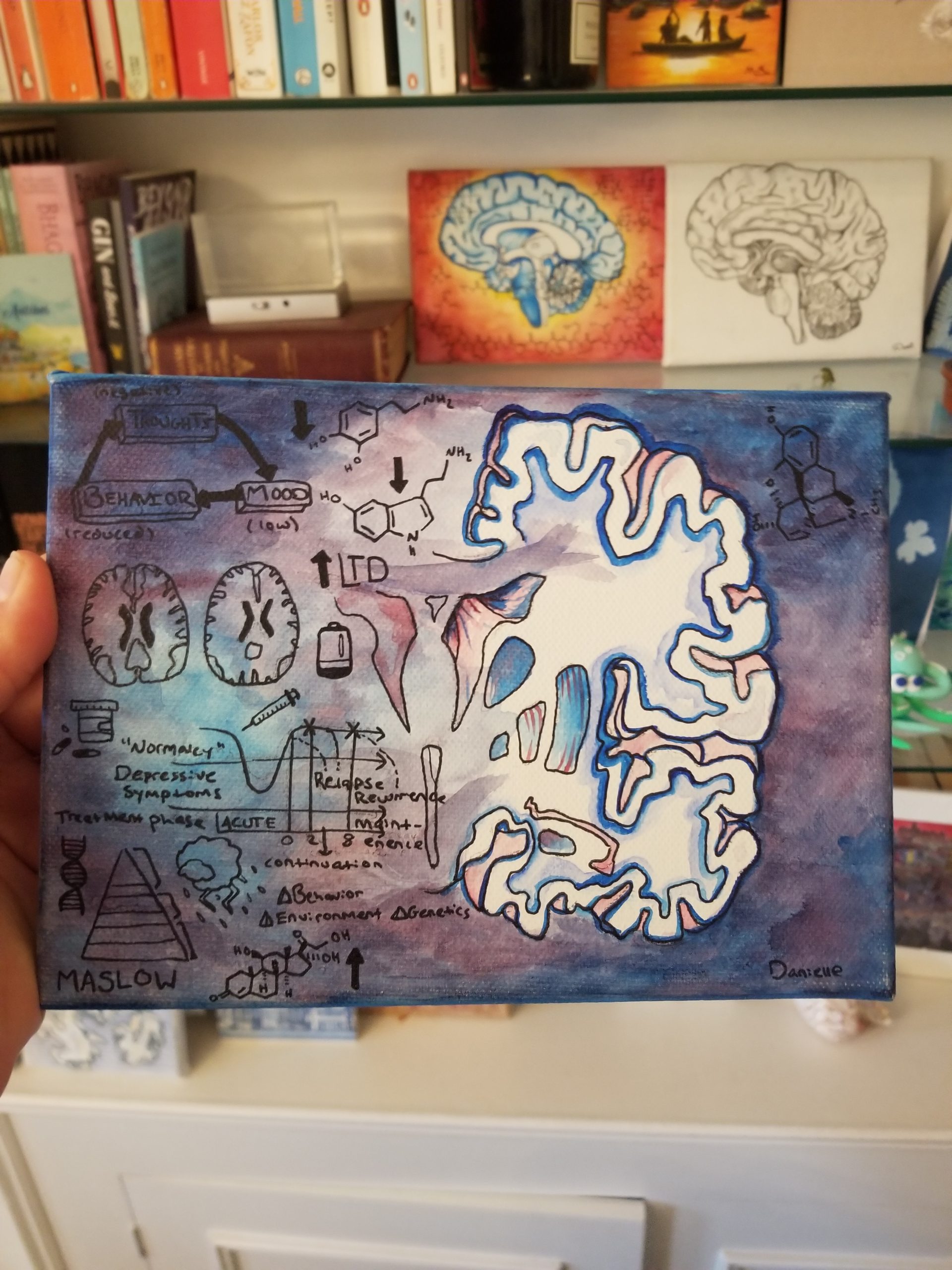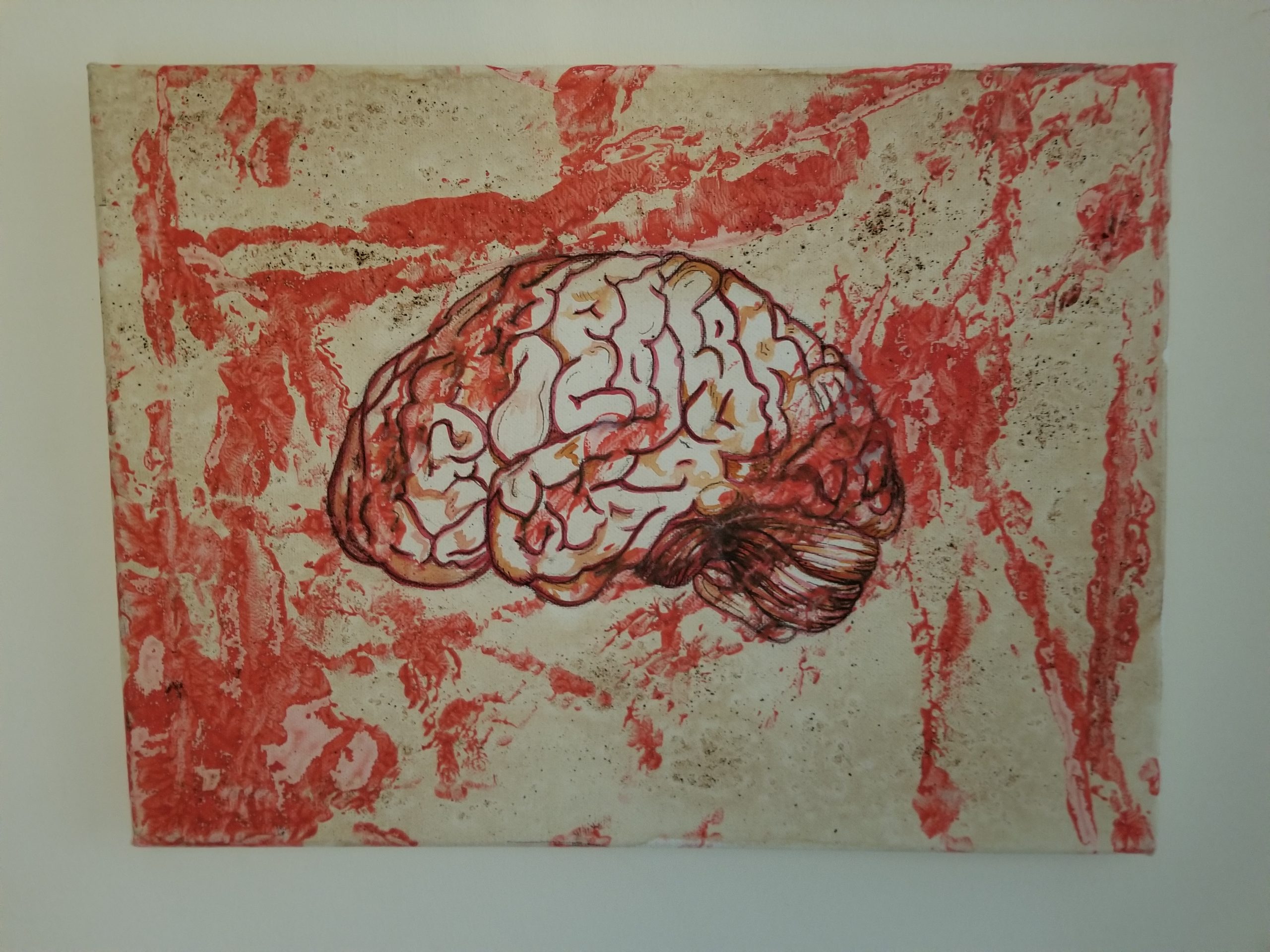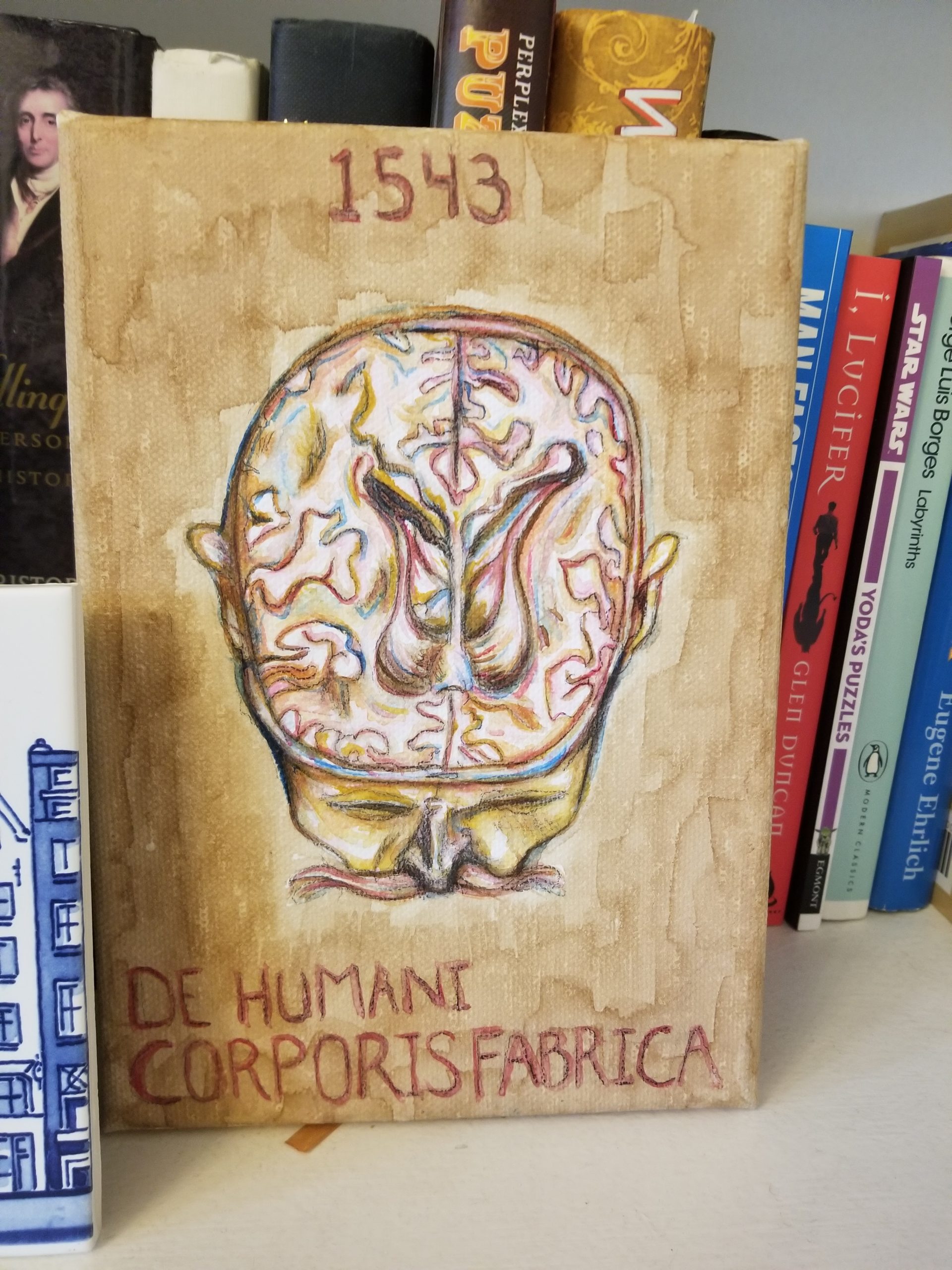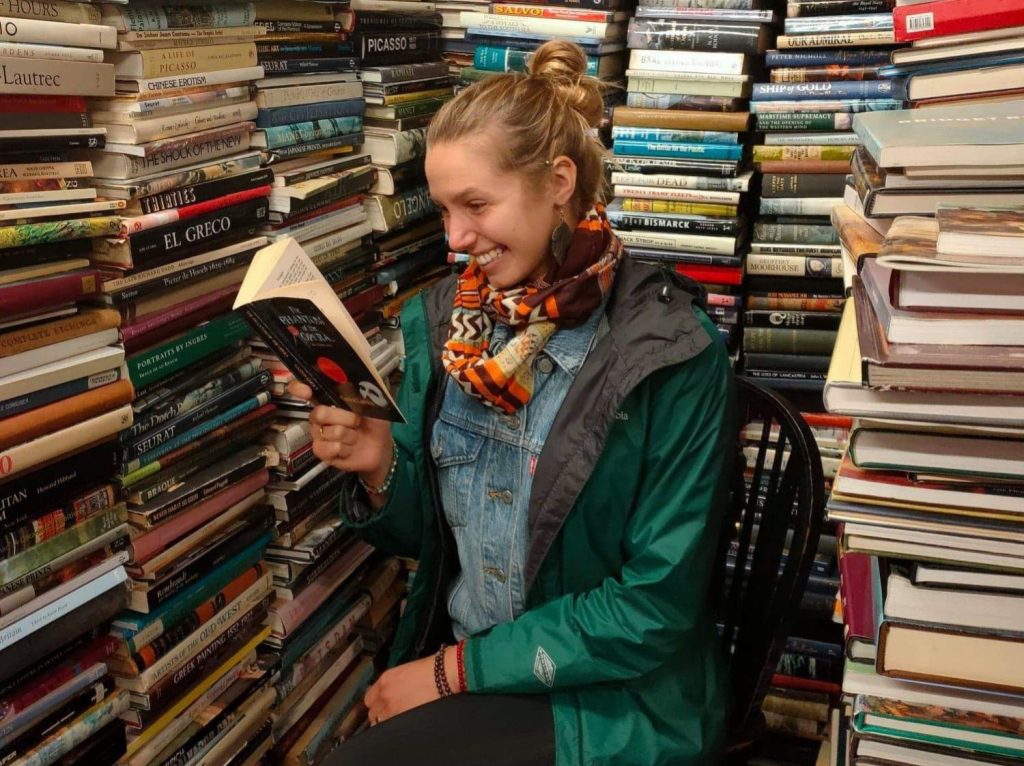
Danielle is a Research Associate in the Department of Brain Sciences at Imperial and within the UK Dementia Research Institute: Care Research And Technology Centre. She is part of Nir Grossman’s lab, focusing on computational neuroscience and brain imaging.
Tell me a bit about yourself
When people ask me to tell them about myself, I often wonder if it’s best to define myself by what brings me joy inside or outside of work. If I were to provide an overview of the two, I’d say that I generally go about life with a trademark enthusiasm and love, be that for people or learning. In addition to research, I enjoy painting, reading, skateboarding, and being in nature. Recently, I have been painting materials for public engagement events; since my research focuses on understanding how different brain regions work together over time, I thought, why not use painting to make neuroscience more accessible and interesting? Who knows, perhaps some people will even consider it as a career!
Below you can find some of the wonderful art that Danielle has been working on recently.
What did your journey into science look like?
My journey into science was rather unplanned. At 16-17, while most people were starting to think about universities and jobs, I was more interested in skipping school. Though I was interested in the topics we learned in class, I felt like an outcast, and I went to four different high schools in four years. I struggled enormously with my mental health, which had knock-on effects to my academic engagement and performance. So, I embraced an alternative lifestyle, walked barefoot everywhere, skateboarded, spraypainted, and all the rest.
But everything changed when I went to the local community college. One of my first classes was a chemistry lab, and when I walked in, Professor Frank Brown saw me barefoot and told me I needed to wear shoes in class. Being a rebellious teenager, I replied, “What if it’s against my religion?” To my surprise, Frank didn’t get upset, he just laughed and told me that I was free to stay, but that I had to teach him more about “my religion” whenever I had the time. He wasn’t dismissive, he wasn’t mean, and most importantly, he wasn’t frustrated with me as a person. Instead, he saw me as I was and thought, “Well, I’d like you to attend this class, so let’s find a common ground together.” So, I started showing up to class because he was nice to me; one of the first teachers I had who wasn’t frustrated with my quirks. Throughout his class, he always encouraged me to speak my mind and to ask questions, and with time I became very excited about science. His support extended beyond the classroom itself – seeing my motivation to conduct science, he offered to drive me to the neighbouring state school, Florida State University, so I could see what a real research lab looked like. He encouraged me to pursue a career in science, which meant the world to me and motivated me to work hard, not only in chemistry but in all of my subjects.
Not long afterward, I applied and got accepted to Florida State University! I still eschewed shoes and continued to spray paint, but I showed up to labs and engaged with coursework. Several years later, I graduated, more in love with research than ever before, and I have been following that career ever since. Recently, I passed my PhD viva, and it’s still so surreal to me that the punk kid I once was officially became a doctor!
What motivated you to choose science over medicine?
I have to say, I loved both fields very much, and for much of my undergraduate studies, I thought I was going to become a medic. However, after gaining a lot of medical experience in hospitals and conducting research in labs, I came to the realization that I felt most at home doing science. Finding a place where I could be my authentic self was very important to me, but much of my medical experience tried to erase parts of my identity. For instance, all my piercings always had to be out, my tattoos had to always be covered, my clothes had to always look in a certain way. And, obviously, I was never allowed barefoot! But this was never the case when I did science. I feel science is one of the most rich, diverse and open-minded fields out there and I’m so glad I chose it. Not only do I feel truly welcome in academia, but it also gives me the freedom to discover “What does it mean to be myself?” in a way that I might not have been able to if there were more restrictions on how I should define myself. I have found that in science all that matters is that you are nice, thoughtful, and dedicated; those are three things that I’m happy to work towards and play with all the rest. Now, I don’t know if it’s because I’m LGBTQ+ that I like science more, but I do think that the parts of me that align with my LGBTQ+ identity are intrinsic to why I feel at home in science.
Do you think being LGBTQ+ shaped the way you view the world and your career in science?
I can’t pinpoint a time when being LGBTQ+ changed my career in science for the worse or for the better, but I definitely think being queer shaped the way I perceive the world around me and the way I perceive people.
For example, my coming out shaped in some way the way I thought about myself and the world. I remember when I was in my first year of University I started dating a girl, and I felt like things were going well, but no one knew about her or that I was pansexual. I really wanted to tell Frank, as he was such an important mentor to me, but the fact that he was a Sunday School teacher from Kentucky made me think that the conversation could go either way. One day, he noticed something was off about me and I built up the courage to tell him. And I’m so glad I did, because it turns out that his sister was also queer! We talked about how coming out went for her and his normalisation of the process made me feel very supported. And even though coming out to my parents didn’t go as well as one would hope, the conversation with Frank gave me a good foundation for what coming out could be like and encouraged me to continue to be true to myself.
Are you and Frank still in touch?
Well… not anymore, although Frank and I kept in touch for a long time after I left the local community college. We stayed in contact all the way through University, and even when I moved to the Netherlands for a neuroscience internship, we still checked in on each other from time to time. He always encouraged me to pursue research, even though I was torn between science and medicine. However, shortly after I got accepted to study an MSc in Neuroscience at Imperial and made my decision to pursue research, I received a phone call from Frank’s sister, Alicia. That’s when I found out that his cancer had come back and that they were organising last conversations. Our final call was devastating, but I am very grateful that not only did I get to say goodbye to him, but I also got to tell him he was right about me becoming a scientist. And even though he’s gone now, and I rarely go barefoot these days, I will always remember him for his kindness and for shaping the person that I am today – an academic and member of the LGBTQ+ community. In his honour, I dedicate a large portion of my outreach activities, focusing on mentorship and supporting disadvantaged students. I will be forever grateful for Frank’s support, and hope to share his spirit of humour, inquiry, and compassion as I continue in the world of academia I’ve come to love.
This interview is one of the many initiatives run by the LGBTQ+ Allies Network in the Department of Brain Sciences at Imperial. If you would like to get involved with what we do or just find out more about us, follow this link.
